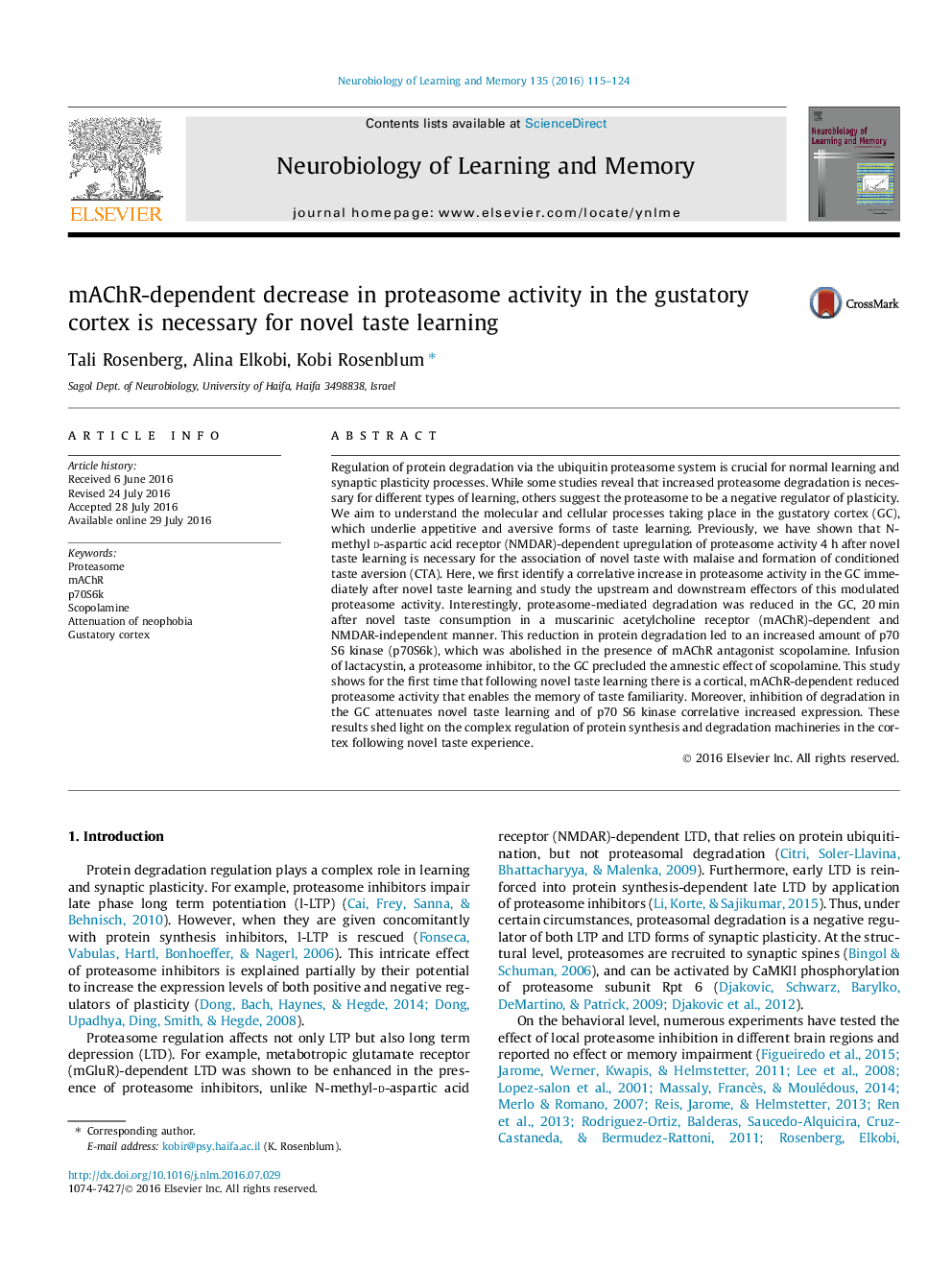| کد مقاله | کد نشریه | سال انتشار | مقاله انگلیسی | نسخه تمام متن |
|---|---|---|---|---|
| 5043359 | 1475139 | 2016 | 10 صفحه PDF | دانلود رایگان |

- GC proteasome activity is downregulated 20Â min following novel taste learning.
- This downregulation of proteasome activity is mAChR-dependent.
- Blockade of mAChR impairs novel taste learning and increases proteasome activity.
- Proteasome inhibition rescues the mAChR-induced impairment in novel taste learning.
Regulation of protein degradation via the ubiquitin proteasome system is crucial for normal learning and synaptic plasticity processes. While some studies reveal that increased proteasome degradation is necessary for different types of learning, others suggest the proteasome to be a negative regulator of plasticity. We aim to understand the molecular and cellular processes taking place in the gustatory cortex (GC), which underlie appetitive and aversive forms of taste learning. Previously, we have shown that N-methyl d-aspartic acid receptor (NMDAR)-dependent upregulation of proteasome activity 4Â h after novel taste learning is necessary for the association of novel taste with malaise and formation of conditioned taste aversion (CTA). Here, we first identify a correlative increase in proteasome activity in the GC immediately after novel taste learning and study the upstream and downstream effectors of this modulated proteasome activity. Interestingly, proteasome-mediated degradation was reduced in the GC, 20Â min after novel taste consumption in a muscarinic acetylcholine receptor (mAChR)-dependent and NMDAR-independent manner. This reduction in protein degradation led to an increased amount of p70 S6 kinase (p70S6k), which was abolished in the presence of mAChR antagonist scopolamine. Infusion of lactacystin, a proteasome inhibitor, to the GC precluded the amnestic effect of scopolamine. This study shows for the first time that following novel taste learning there is a cortical, mAChR-dependent reduced proteasome activity that enables the memory of taste familiarity. Moreover, inhibition of degradation in the GC attenuates novel taste learning and of p70 S6 kinase correlative increased expression. These results shed light on the complex regulation of protein synthesis and degradation machineries in the cortex following novel taste experience.
Journal: Neurobiology of Learning and Memory - Volume 135, November 2016, Pages 115-124